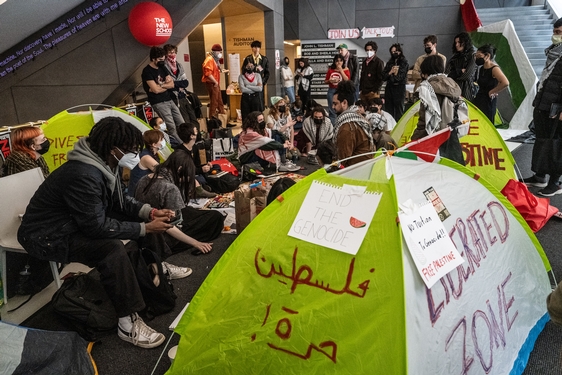The Free Application for Federal Student Aid is undergoing its most significant changes in nearly 30 years, and one of the new regulations will directly impact undocumented families.
College students must file the form, better known as FAFSA, each year to get financial aid from the federal government. Many states and universities also base their own assistance on the form.
This year’s changes will be the biggest overhaul since 1997, when the form became available online.
One of the major changes includes easing the process for parents without social security numbers, which includes undocumented individuals. Both students and parents must create an account and obtain a federal student aid ID to complete the form.
Before the change, parents without a social security number would enter 000-00-0000. This led to extra verification steps including printing out the signature page, manually signing and mailing it in. Verification is needed by the parent and student each time a change or update is made.
Online verification takes seconds, while mailing in the signature page could take weeks, which can be “problematic,” said Erika Viramontes, the director of the school counseling program at Green Dot Public Schools California, a nonprofit educational organization based in Los Angeles.
Now, parents can get a federal student aid ID without having a social security number. They will be given a pseudo-number for the application process.
“The idea is to be a lot more simple,” Viramontes said. “Parents are not going to have to go back and forth to verify their identity.”
The form won’t be available until a yet-to-be-specified date in December, a few months later than usual, so the process is still unclear.
To verify, Viramontes said, parents will likely have the option of answering “knowledge-based” questions potentially tied to employment, housing and income. But that may present another challenge for already nervous parents.
“This process is just very scary for me and for other students,” said Kimberly Gomez, program coordinator for Sacramento State’s Dreamer Resource Center, which provides help to undocumented students and individuals with mixed-status families.
Gomez recalled the hesitancy in her undocumented parents when she asked for their tax information. She said deportation continues to be an ongoing fear for them along with others in similar situations.
“There’s just a lot of mixed emotions for parents, especially because most mixed-status families’ students are also first generation,” Gomez said. “So they’re already going through the stress of applying for colleges and not knowing what financial aid is.”
Still, Gomez encouraged all students and families, regardless of their situation, to submit a FAFSA application.
Undocumented and Deferred Action for Childhood Arrivals students remain ineligible for federal student aid. However, they may be eligible for state financial aid and private scholarships.
Under Assembly Bill 540 and the California Dream Act, undocumented students can receive financial aid from the state and its public universities if they meet certain eligibility requirements.
“Definitely don’t let this change take away the opportunity of you going to college,” Gomez said.
Other upcoming FAFSA changes include students no longer needing to register for selective service; a new methodology for determining aid; eliminating the discounts students receive when they have siblings enrolled in college; and reducing parents’ expected payments for students with low incomes.
The National Attainment College Network is hosting monthly virtual webinars to prepare students and families for the upcoming FAFSA changes.
____
©2023 The Sacramento Bee. Visit at sacbee.com. Distributed by Tribune Content Agency, LLC.




